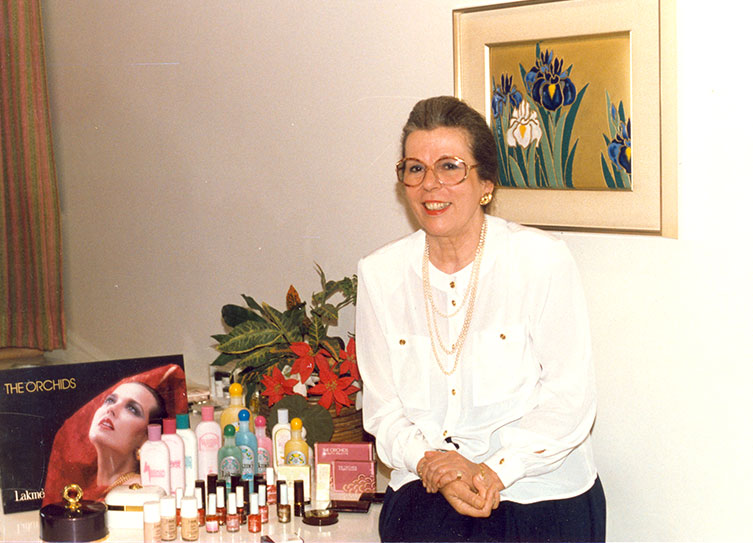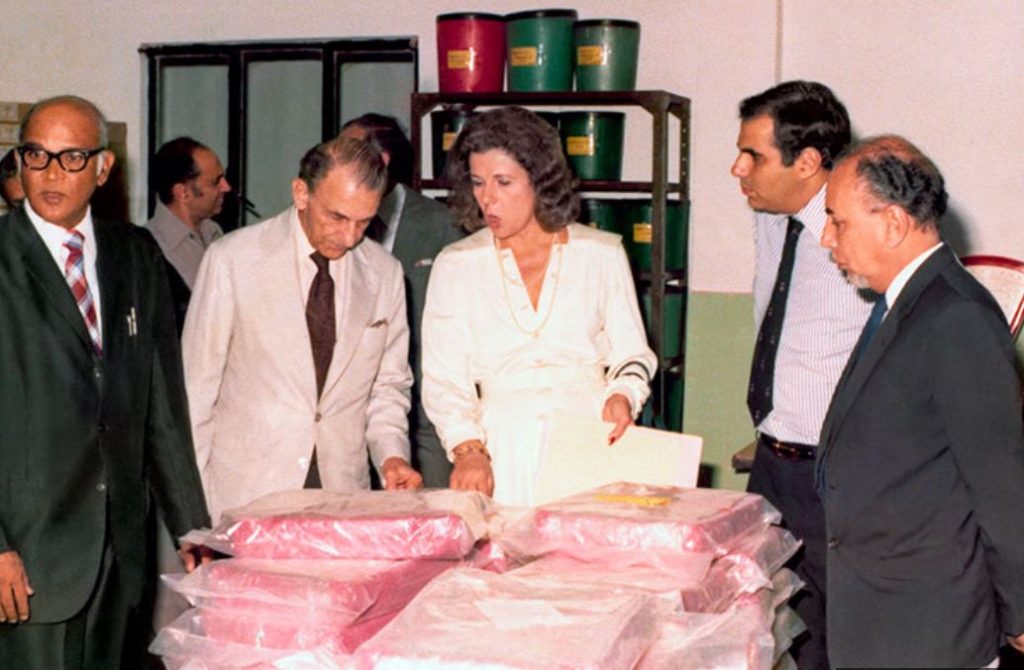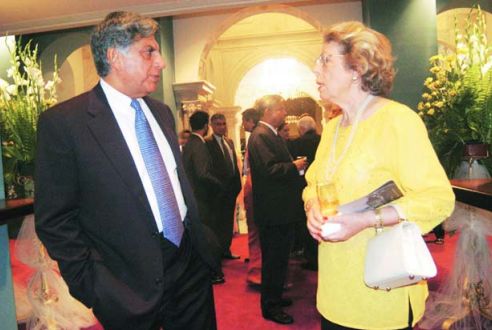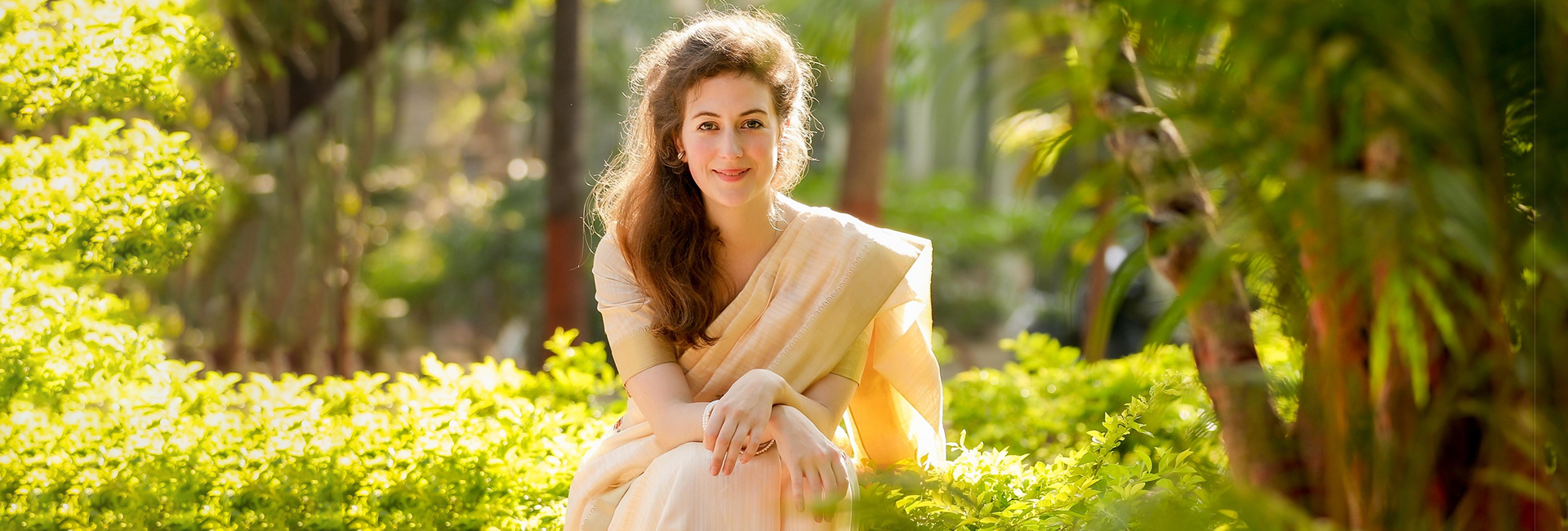(December 15, 2023) Seventy years back, in 1953, a young girl named Simone Dunoyer embarked on her very first journey from Geneva, Switzerland to India as a tourist. Little did Simone know that the foreign land she was travelling to would eventually become her cherished home for the rest of her life, and she would end up playing an integral role in the growth of India’s largest conglomerate, the Tata Group.
Amidst the intricate fabric of the Tata heritage, Simone Tata’s journey unfolds as an extraordinary narrative of determination, foresight, and trailblazing leadership. Her odyssey began as a chance encounter with India as a tourist in 1953, a journey that introduced her to Naval H. Tata, whom she married in 1955. Settling permanently in Mumbai, Simone became an integral part of the Tata family, assuming the role of the stepmother to Ratan Tata who went on to become the most revered industrialist of India. Simone Tata is also the biological mother of Noel Tata, the chairman of Tata Investment Corporation and Vice Chairman of Trent. She made her mark in the Tata Group by turning Lakmé into a global cosmetic powerhouse. The 93-year-old’s involvement extends to the ascent of another popular Tata brand Westside, alongside her commitment to philanthropic endeavours.

Simone Tata
Early years
Born in 1930, Simone Tata was brought up in Geneva, Switzerland, where she graduated from Geneva University. In 1953 when she arrived in India as a tourist, fate led her to meet Naval H. Tata. They fell in love and got married in 1955. With this Simone’s life-long association with India began. As the daughter-in-law of the Tata family, she settled permanently in Mumbai following her wedding,
Leading Lakmé and helping India shed conservative mind-set
When Simone Tata joined the Lakme Board in 1962, it was a minor subsidiary of Tata Oil Mills. It was not part of the mainstream businesses of the Tata Group and quite small in comparison to the conglomerate’s other ventures.

Simone Tata when she was at the helm of Lakmé
She joined the subsidiary as its managing director, and steered the company into a new era. Her hands-on involvement even extended to formulating Lakmé’s products. She even started importing raw material and testing the finished products abroad. Her strategic moves saw Lakmé burgeon into a global cosmetic brand, with Simone eventually becoming its chairperson in 1982. Seven years later in 1987, she was appointed to the board of Tata Industries.
“Back in the ’60s, beauty in the country certainly didn’t mean any cosmetics. It was old-school—there were natural, herbal products on one side and talcum powder on the other. That was all. Makeup was an absolute taboo. You couldn’t appear in public wearing the tiniest amount of makeup, not even a touch of lipstick. Not unless you wanted to be framed as a bad girl,” Simone had said in an interview reminiscing how she had set on making cosmetics acceptable and accessible for Indian women. “I liked women to put their best face forward and I wanted to give them the tools for that. I wanted them to take charge of their appearance.”
Under Simone’s leadership, Lakmé changed perspectives of the Indian society and made Indian women adopt a modern outlook. Its campaigns led the country to think and question the beauty beliefs. Campaigns with questions like ‘Do men look down on women who use makeup?’ and ‘Is it bad to look good?’ prompted a shift in people’s thought process, and Lakmé got successful in making its products available in every household.

Simone Tata with JRD Tata
Laying the foundation of Westside
With time Simone’s ambitions as a businesswoman did not remain confined to the realms of cosmetics. Recognising the retail industry’s potential, she strategically sold Lakmé to Hindustan Lever Limited (HLL) in 1996. Subsequently, she used the proceeds to establish Trent, the company behind Westside, laying its foundation. Shareholders of Lakmé were allotted equivalent shares in Trent.
The move signified Simone’s versatility as a business maven and her innate knack for spotting market opportunities. Just like Lakme, the brand soon became a household name with a chain of stores all over India bringing modern retail experience to the Indian shoppers.
In an interview talking about her rise in the sphere of business, Simone had remarked, “My biggest challenge was to direct a company without having had any past business experience. I had no clue on how to read a balance sheet even, and my knowledge of other aspects of the CEO function was limited. This was at a time when no business schools existed; there were no tools in terms of education, there were no conferences and seminars which one could attend to learn the finer aspects of running a business.” However, she had the dedication to learn on-the-job and be successful at the work she had taken in hand. “Life was certainly less hectic those days and you had more time to learn. The important thing was never to despair,” she had remarked.

Simone Tata with Ratan Tata at the celebration of 100 years of The Taj Mahal Hotel
Two strategies that helped Simone thrive was the art of delegating responsibilities to subordinates and the approach of surrounding oneself with well-versed people in every field, be it law, finance or marketing.
Giving back
Beyond the boardroom, Simone Tata’s heart resonated with philanthropic endeavours. She has led Sir Ratan Tata Institute as its chairperson. The institute that was started in 1928 caters authentic Parsi delicacies, outfits for kids and ladies, and also home linen produced by women of marginalised communities.
Additionally, Simone serves as a trustee of Children of the World (India) Trust, a public charitable organisation associated with Enfants du Monde of France. It works with the purpose to reach out to the most disadvantaged people of the society, particularly women and children. Even in her nineties, she has been devoting her time and energy to the cause.

Simone Tata at one of the charity events
Her commitment has also extended to supporting the arts. She is the trustee of the India Foundation for the Arts, championing creative expression and cultural enrichment, strengthening capacities and infrastructure in the arts in India. “I did not ever intend to have a professional life, but it has turned out to be a very happy development,” she had shared in an interview, “I started at the top in a non-existent industry. I had the great privilege to build the organisation the way I wanted to. The important thing is to have a vision, clarity and the ability to mould people,” – her words of wisdom for people aspiring to fly high.
Read a similar story of World’s Most Powerful Women featured in Forbes’ 2023 list.





This tata industry is our globals largest manufacturer goods bheical steel.salt.plane producer company.this tata company all ways work for humens life development nation development with our global development perposely work.thank you all my dear my global friends…